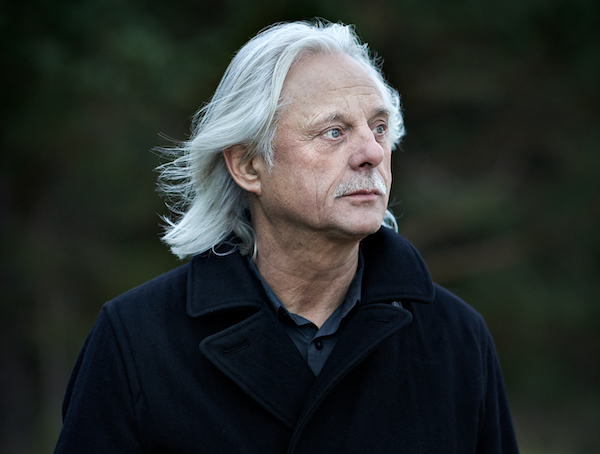Jan 13, 2026 2:09 PM
More Trump-Kennedy Center Cancellations
The fallout from the renaming of the John F. Kennedy Center for the Performing Arts to include President Donald…

Fifty years ago, Manfred Eicher co-founded Edition of Contemporary Music, better known as ECM, and has issued more than 1,600 titles spanning jazz and classical sounds.
(Photo: Kaupo Kikkas)A search for the heart of the ECM Records operation leads to a small, quiet space located on the second floor of a compound in an industrial section of Munich, Germany. Here, in visionary label head Manfred Eicher’s peaceable central office—filled with audio equipment from different eras—the producer and curator of the ECM aesthetic plots his company’s moves.
Nearby, the bustle of the Autobahn serves as a reminder of an extant urbanity. But, aptly, a sitting position in Eicher’s office affords a deceptively bucolic view of a canopy of trees that surrounds the building, ECM’s home base since the 1970s. Part of what makes the ECM story such an important one within jazz and classical circles is the label’s magical blend of timeless introspection and contemporary sophistication.
On many ECM albums, one hears the calm of the trees alongside the thrush of the traffic.
Fifty years ago, Eicher co-founded Edition of Contemporary Music, better known as ECM. The label has issued more than 1,600 titles and earned a sterling reputation among fans, critics and concert presenters the world over. During a conversation with DownBeat, Eicher reflected on the past, present and future of the imprint, which topped the Record Label category in the 2019 DownBeat Critics Poll. Eicher also topped the poll’s Producer category.
Stepping into the Eicher epicenter can evoke a sense of reverence for those familiar with the producer’s work: The space feels like a temple of deep listening.
Despite the appeal of such a personalized space, Eicher hardly is chained to his desk. Moving between studios and coordinating recording sessions around the globe has made him inherently itinerant. In Peter Guyer and Norbert Wiedmer’s 2009 documentary, Sounds and Silence: Travels with Manfred Eicher, the label head admits, “I like to travel. Music has no fixed abode.”
At 50, the label thrives, releasing about 50 albums each year. And the catalog features a who’s who from the world of creative music: pianists Keith Jarrett, Chick Corea and Vijay Iyer; guitarists Pat Metheny, John Abercrombie and Jakob Bro; bassists Charlie Haden, Dave Holland and Eberhard Weber; vibraphonist Gary Burton; vocalist/composer Meredith Monk; saxophonists Charles Lloyd and Jan Garbarek; trumpeters Enrico Rava and Tomasz Stańko; and bands, such as Oregon and the Art Ensemble of Chicago.
In 1984, Eicher—who started his career as a classically trained double bassist—launched the New Series, a dedicated classical line, spotlighting such names as Arvo Pärt, György Kurtág, Kim Kashkashian and Steve Reich. To date, Eicher has won three Grammy awards, all for his production work on classical recordings.
Eicher explained how he maintains a balance between jazz and classical music. “One line deals with music created primarily through improvisation,” he said. “The other line starts from the carefully realized score. Both approaches are important to me—form and freedom. I benefited from one and the other.”
In Munich, Eicher invited DownBeat to a savory Italian dinner at a humble restaurant close to his home near the Isar River. Also along was Steve Lake, an ECM mainstay since the late 1970s, who has had a variety of roles: writer, organizer, conceptualist and sometimes producer. The dinner discussion ranged from the label’s history to Eicher’s rural upbringing in the German town Lindau, on Lake Constance, near the Switzerland and Austria borders. That formative setting partly could account for his taste for music that is earthy, open and folkloric.
Describing his ECM experience, Eicher mused that, despite the international profile afforded by various high-profile distribution deals, he has enjoyed remarkable artistic freedom. “I’ve had great luck in being able to do what I want, without answering to anybody, with no corporate boss in the back,” he said. “We’ve been able to keep it going all this time.”
Lake added, “This is one of the great independent labels.”
Whereas other record company headquarters might flaunt a sense of flashy style, ECM’s Munich hub shuns extraneous frills. While leading a tour of the Munich offices, label publicist Christian Stolberg asserted that Eicher “loves things functional, and that’s it. I think he wants to use the money for the productions and not for show.”

Belá Fleck during an interview with Fredrika Whitfield on CNN.
Jan 13, 2026 2:09 PM
The fallout from the renaming of the John F. Kennedy Center for the Performing Arts to include President Donald…

Peplowski first came to prominence in legacy swing bands, including the final iteration of the Benny Goodman Orchestra, before beginning a solo career in the late 1980s.
Feb 3, 2026 12:10 AM
Ken Peplowski, a clarinetist and tenor saxophonist who straddled the worlds of traditional and modern jazz, died Feb. 2…

The success of Oregon’s first album, 1971’s Music Of Another Present Era, allowed Towner to establish a solo career.
Jan 19, 2026 5:02 PM
Ralph Towner, a guitarist and composer who blended multiple genres, including jazz — and throughout them all remained…

Rico’s Anti-Microbial Instrument Swab
Jan 19, 2026 2:48 PM
With this year’s NAMM Show right around the corner, we can look forward to plenty of new and innovative instruments…

Richie Beirach was particularly renowned for his approach to chromatic harmony, which he used to improvise reharmonizations of originals and standards.
Jan 27, 2026 11:19 AM
Richie Beirach, a pianist and composer who channeled a knowledge of modern classical music into his jazz practice,…